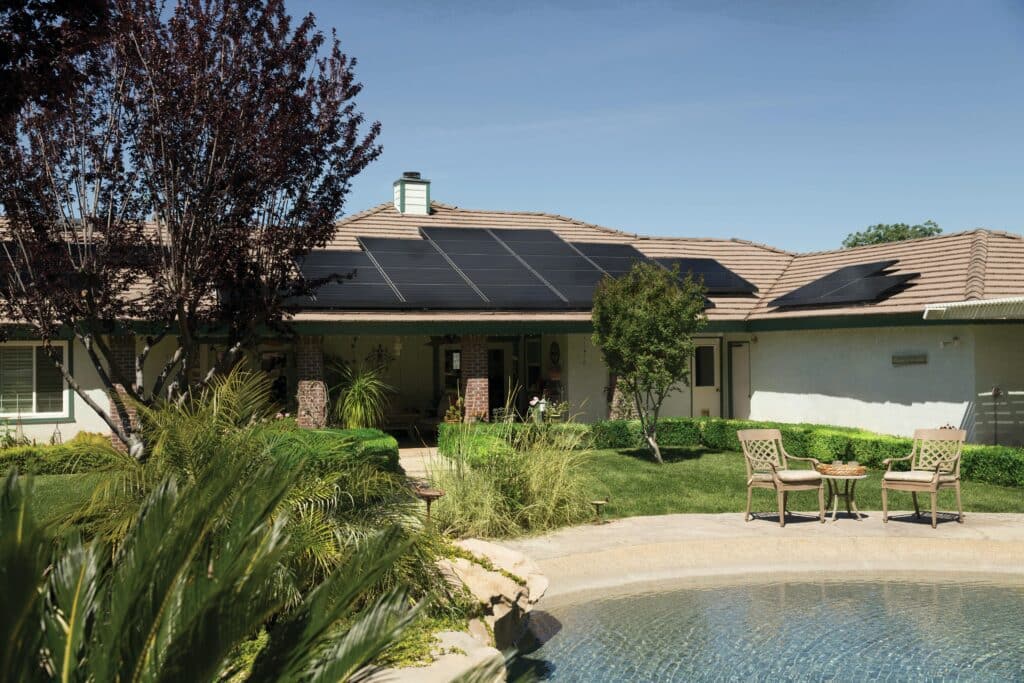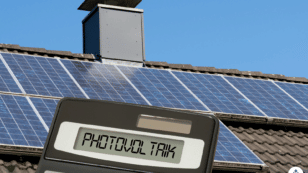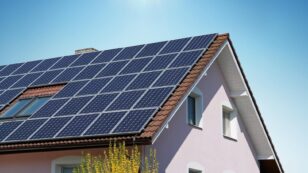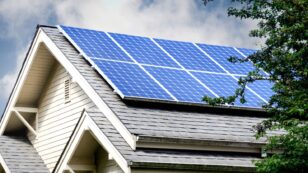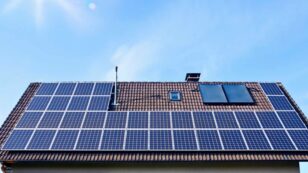
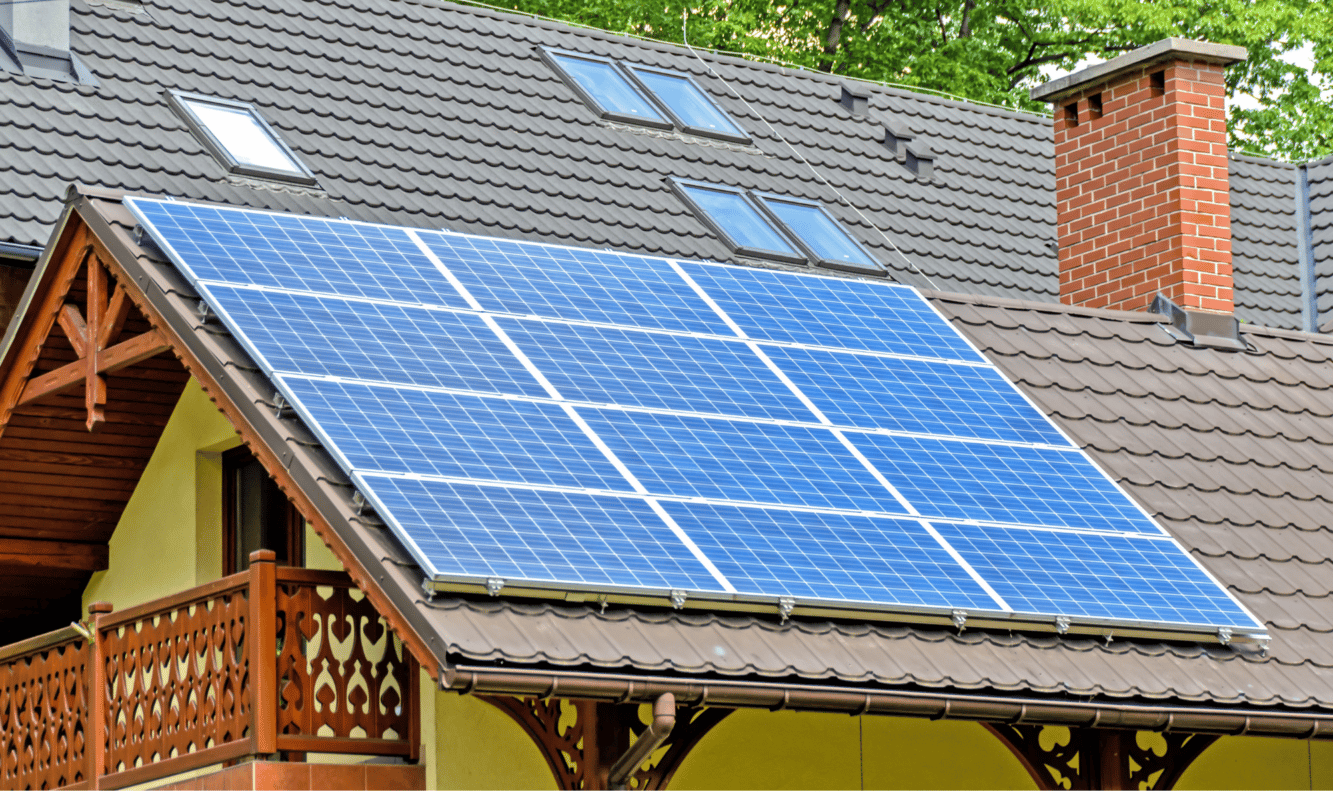
Where to Buy Affordable Solar Panels (2024)
In this guide, we’ll answer:
- Can you buy your own solar panels?
- Who has the best pricing for solar panels?
- What is the best way to buy panels for solar?
Each product and or company featured here has been independently selected by the writer. You can learn more about our review methodology here. If you make a purchase using the links included, we may earn commission.
Where Can You Buy Solar Panels?
There are three ways to purchase solar panels:
- Going through an approved solar company in your area that has certified deals with top manufacturers
- Purchasing DIY kits at home improvement stores like Home Depot or on Amazon
- Purchasing Solar panels straight from manufacturers websites
Home and business owners typically purchase solar panels through solar companies, which are certified to deal and install products from top manufacturers. These solar installers then plan and execute the installation, and many monitor the system afterward for proper functionality.
However, solar panels and solar panel kits are also sold directly from distributors in the event you’re qualified to carry out your own DIY solar installation. Consider the following when making a decision about where to purchase your panels.

Blue Raven Solar

Regional Service
Average cost
Pros
- Industry-leading in-house financing
- Competitive pricing
- Excellent reputation
Cons
- Doesn't offer solar batteries (coming 2022)
We like Blue Raven Solar because it understands that, for most homeowners, the cost of solar presents the biggest barrier to entry.
For that reason, Blue Raven Solar developed an innovative solar financing plan that offers in-house, flexible, zero-money-down options with no interest for 18 months. The results speak for themselves, as Blue Raven Solar is now one of the fastest-growing solar companies in the nation and was recently acquired by SunPower. Its BluePower Plus+ plan (exclusive to Blue Raven) mimics the flexible structure of a lease while still providing the greatest benefits of owning your system. It will also help keep solar affordable as more states move to net metering 3.0, as California did in 2023.
Eligible homeowners enjoy 18 months of solar power before having to pay their first bill. When coupled with the federal solar investment tax credit (ITC), the initial energy savings can offset more than a third of the overall cost of a system before requiring a dollar down.
In contrast, other installers can only offer similar financing through solar leases, PPAs or third-party providers (such as Mosaic or Sunlight). Third-party loan providers can complicate the process, while opting for a loan or PPA will disqualify you from some of solar’s biggest benefits (additional property value, federal solar tax credit and local solar incentives).
Facts and Figures: Blue Raven Solar
| EcoWatch Rating |
|---|
| Better Business Bureau (BBB) Rating |
| Year Founded |
| Average Cost ($-$$$$$) |
| Solar Services |
| Brands of Solar Equipment Offered |
| Warranty Coverage |
| 4.5 |
| A+ |
| 2014 |
| $$ |
| Solar Panels, System Monitoring |
| Trina Solar, Canadian Solar, SolarEdge, Silfab, SunPower |
| 25-year manufacturer warranty; 10-year workmanship warranty, 2-year production guarantee |
Choosing a Solar Installer in Your Area
Certified solar energy companies carry out the vast majority of solar panel installations. When hiring a professional solar company, you can either go with a local or national installer.
A local solar installer will usually be able to offer you more personalized service, more affordable prices and more intimate knowledge of local solar incentives and policies. Ultimately, this could end up saving you more or helping you get more value out of your system. The flip side is that nationwide installers can often have access to a wider range of solar products, like the most efficient solar panels and the best solar batteries in the industry, and they often buy materials in bulk and can pass those savings onto you as the customer.
This can give you more options to maximize the power output and durability of your system, too. There’s not really a right or wrong answer here, and in fact, the best approach may be to consult with two or three installers that service your area before making your decision.
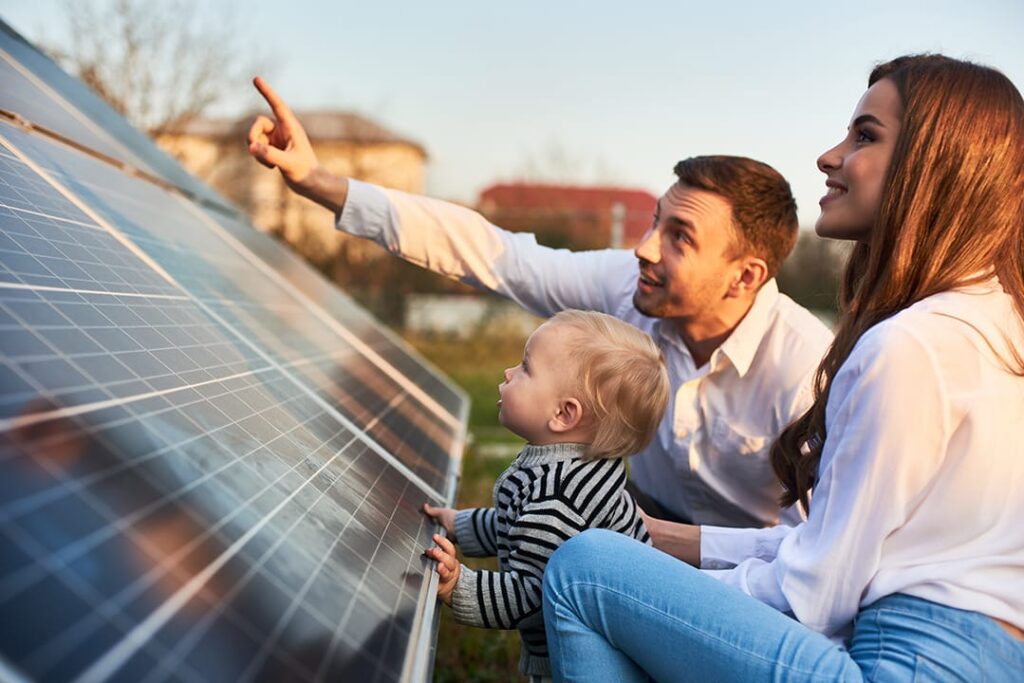
DIY Solar Panel Installation
Installing your own solar panels provides the opportunity to save money on labor and also gives you greater control over the final configuration of your home solar system. Be aware, however, that there can be significant downsides to do-it-yourself solar jobs.
First, it is complex, technical work, requiring electrical expertise and thorough knowledge of how solar works. If you’re unskilled or inexperienced in working with electricity, installing solar panels presents concerns to both your safety and the integrity of your roof and electrical system.
Additionally, going with DIY solar panels means you won’t reap the benefits of experienced solar designers, who can help you design the optimal energy-generating, money-saving system. If you do choose to buy solar panels and install them on your own, you can purchase panels from:
- Manufacturer websites
- Hardware stores
- Amazon.com (where you can buy full solar panel kits)
Finally, DIY panels tend to have efficiency ratings that top out at 18% and average around 15%. This pales in comparison to the 22.7% maximum and 20% average from professionally-installed panels. Overall, you’ll see more value from professionally-installed panels because they’ll offset more or your electric bill. It will cost more upfront to hire a pro, but you’ll usually save more — an average of $31,513 after the system pays for itself — in the long run.
How to Buy Solar Panels
Now you know where to purchase panels, but as for how to buy solar panels, your next steps will again depend on whether you hire a professional or go the DIY route.
Hiring an Installer for your Solar Panels
For most of our readers, we recommend hiring a solar installer that will plan your system and purchase the solar equipment on your behalf. Note that installers buy in bulk and have access to wholesale prices, so they can actually help you save money on your equipment costs, though of course, you’ll then have to pay for the labor. The general steps in the process are as follows:
- Consultation: Meet with a few of your area’s top solar companies to compare pricing and proposals outlining the pros and cons of solar for your home.
- System design: Once you choose a solar installer, a representative will take a look at your roof and design a solar system that meets your energy goals. The importance of this step usually outweighs that of the installation itself, as a solar system will only be as effective as its design.
- Permitting: Depending on where you live, you may require permits and approvals from your municipality before your solar system can be installed. Your installer can handle all of this on your behalf.
- Net metering: If your local utility company offers net metering, you’ll need to apply and enroll prior to the installation itself. This step should also be handled by your solar company, though it may require a signature or two from you.
- Installation: Once you receive the needed approvals, your installer can begin work to assemble your system. This may take anywhere from a day to a full week depending on the complexity of your project. Most installations are finished within a day.
- Review and approval: Most municipalities will require you to have your system inspected for safety before it’s “switched on.” Both cities and utility companies usually require inspections. Again, your solar company will handle the logistics of these inspections.
- Using your system: After you get your final approvals, you’ll be ready to turn on your solar system. Your installer will advise you on how to do so. They’ll usually set you up with a monitoring system, as well, so you can keep track of your production and ensure proper functionality.
- Applying for tax credits: Any reputable solar company will walk you through how to apply for solar tax credits, rebates or grants available in your area. Some will even do so on your behalf.
If you want to know more about installing a solar panel system, you can click below to connect with an EcoWatch-vetted installer and get a free estimate.
Buying Your Own Solar System (DIY)
If you’re a more qualified homeowner looking to research, design and install your home solar system, you’ll need to purchase equipment on your own. First, determine how many solar panels your home requires.
This hinges on an array of factors: the amount of electricity your household consumes, the surface area available on your roof, the amount of sun exposure your roof receives and more. The number of panels you need will vary wildly, but the table below includes a quick look at some estimates based on monthly electricity consumption.
| Monthly Electricity Consumption | Average System Size Required | Average # Panels Required |
| 600 | 6 kW | 16 |
| 700 | 7 kW | 19 |
| 800 | 8 kW | 22 |
| 900 | 9 kW | 24 |
| 1,000 | 10 kW | 27 |
| 1,100 | 11 kW | 30 |
| 1,200 | 12 kW | 32 |
For residential installations with limited roof space to work with, we recommend looking into highly efficient solar panels. This will ensure your investment is worthwhile. (We’ll get more into the different types of solar panels below.) Also, remember that designing a solar system requires a lot more than just panels. Consider what equipment you’ll need before purchasing your solar panels.
Do you want a string inverter or microinverters? Do you need a battery? A charge controller? (We’ll also get more into this later on). Even if you carry out your own installation, you’ll still need to apply for any necessary permits and interconnection agreements. In the event you perform an off-grid installation, you may not need permission from your utility.
What Are The Types of Solar Panels For Sale?
There are three basic types of photovoltaic panels available today: monocrystalline, polycrystalline and thin-film. The factors differentiating these options have to do with the efficiency, flexibility, solar cell makeup, size and cost of the solar panels. These can all impact which solar panels you purchase.
| Solar Panel Type | Advantages | Disadvantages |
| Monocrystalline solar panels | Highest efficiency and best performance | Highest upfront cost |
| Polycrystalline solar panels | More affordable than monocrystalline | Lower efficiency than monocrystalline |
| Thin-film solar panels | Portable and flexible | Lowest efficiency and power output |
An important note we’ll repeat: For homeowners with a limited surface area on their roofs, efficiency is the name of the game. Make sure to buy solar panels with high efficiency ratings, as this will maximize the sunlight available to you, making your investment more worthwhile. Most of the best solar panels will be monocrystalline.
Panel efficiency is likely going to become even more important than it is now once net metering 3.0 is adopted throughout the country. This change to the net metering policy will reduce the credit rate for every kWh you export to the grid, so you’ll need higher production rates and exportation rates to break even. In most cases, you’ll also need batteries to see significant savings, at which point high-efficiency panels can help keep them charged and ready to support your home’s consumption at night or on cloudy days.
Other Equipment You’ll Need to Buy for Your Solar Panel System
If you’re doing your own installation, you’ll need to consider purchasing the following when you buy your solar panels:
- Inverter: This converts direct current (DC) solar energy into the alternating current (AC) electricity needed to power your home. Most options will be string inverters or microinverters.
- Battery: A solar battery allows you to store excess energy for future use rather than feeding it back into the electrical grid. Having a battery maximizes your solar energy use.
- Mounting system: This stabilizes your solar panels and ensures they stay in their proper rooftop position.
- Wiring: Wiring is used to connect your solar system to your electrical panel. You’ll also need conduit to run the wires safely.
- Solar charge controller: A charge controller regulates voltage and prevents batteries from overcharging.
- Critter guards: These guards go along the edge of your panels and keep squirrels and birds out from underneath them. These aren’t technically required, but they can help prevent fires and are highly recommended.
Final Thoughts: Where to Buy Solar Panels
Installing solar panels involves a number of decisions, starting with where to buy your panels. Are you qualified to install solar panels yourself? What type of solar panel is best for your energy needs? What other equipment will you need to buy along with your panels?
If you choose to go with a solar company:
Make sure you do your research and hire a vetted, experienced solar contractor with a track record of success. Ask any friends or neighbors with solar who they hired and how their experience was. Some solar companies have programs that reward $1,000 or more for referrals. You can also continue your research on the best solar companies, or look for local solar installers in your area.
If you want to know more about installing a solar panel system, you can click below to connect with an EcoWatch-vetted installer and get a free estimate.
The cost information presented in this article is derived from a comprehensive analysis, incorporating data from multiple industry sources. The average cost per watt per state was calculated based on figures from Consumer Affairs, Energy Sage, and Berkeley Lab’s Electricity Markets & Policy Department. Additionally, monthly energy consumption and the average monthly cost of electricity were sourced from the U.S. Energy Information Administration, ensuring a well-rounded and accurate representation of the information presented.
FAQ: Buying Solar Panels
You can buy your own solar panels directly from manufacturers, from hardware stores or online. However, installing panels on your own when unqualified to do so can result in safety issues, an inefficient system or issues to the structural integrity of your home. With an investment as significant as solar, we usually recommend hiring a professional.
Solar panel costs differ widely due to variations in quality, efficiency, warranty and power. One solar panel for an off-grid or small DIY project can cost as little as $100. A standard 350-watt, high-efficiency residential solar panel will cost closer to $1,100 or more.
When properly planned and executed, solar panels are one of the best investments you can make in 2023. This won’t be the case for all homeowners, however. If your energy use is already minimal, your roof doesn’t receive enough sunlight or the cost of solar in your area is unusually high, you may not get enough out of your investment to make it worthwhile. It’s best to consult with a solar company near you to determine the solar potential of your home or business.
Comparing authorized solar partners
-
- Industry-leading in-house financing
- Competitive pricing
- Excellent reputation
- Doesn't offer solar batteries (coming 2022)
A+Best Solar Financing2014Trina Solar, Canadian Solar, SolarEdge, Silfab, SunPower25-year manufacturer warranty; 10-year workmanship warranty, 2-year production guarantee
Having trouble deciding? Click below and use our process to receive multiple quotes instead:

 233k
233k  41k
41k 

